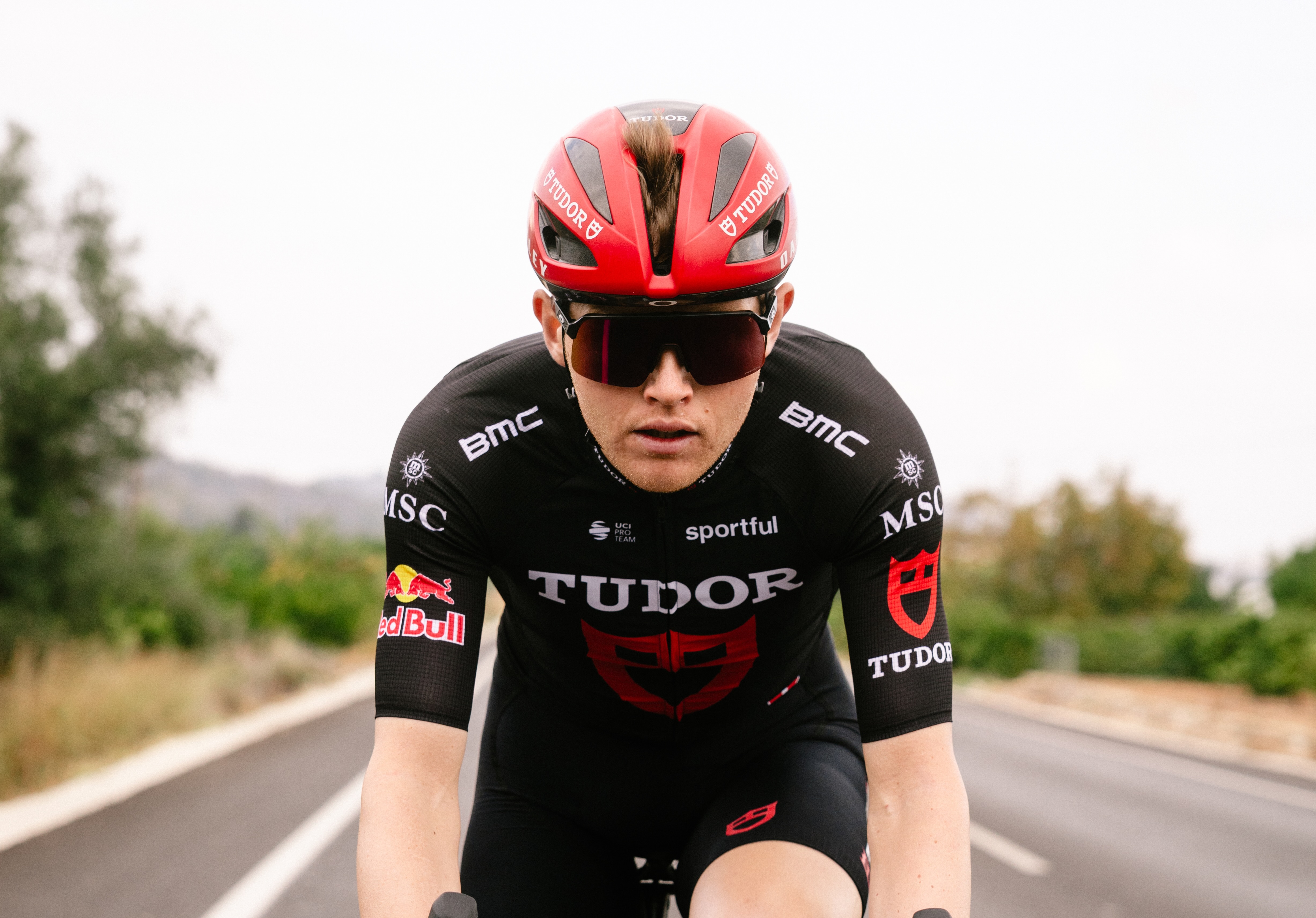Amanda Carey reigns over National Ultra Endurance (NUE) Series
Queen of 100-milers finishes off season with second consecutive series title
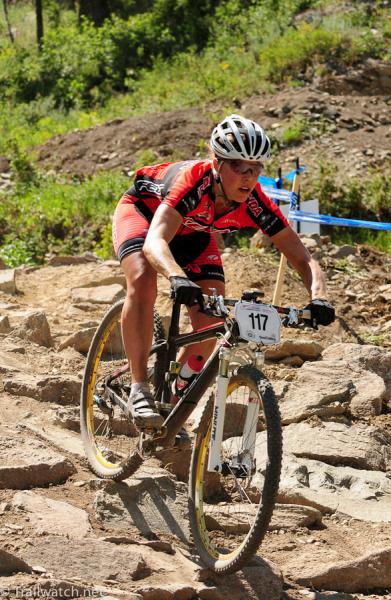
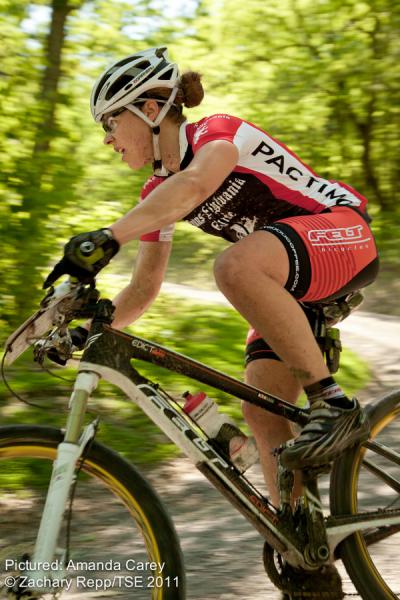
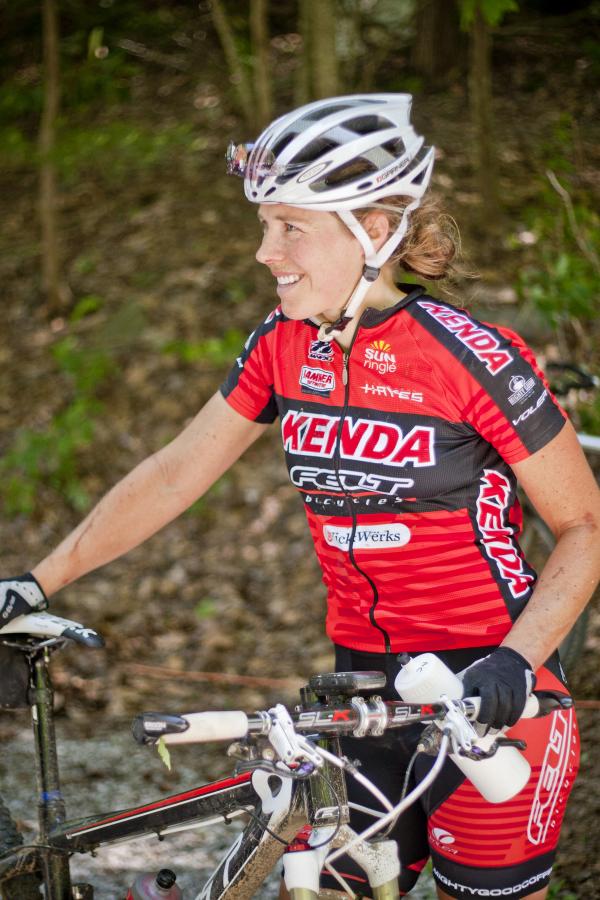
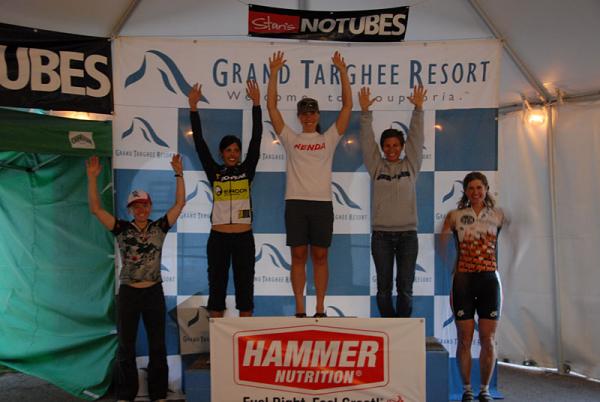
Amanda Carey was the queen of the National Ultra Endurance (NUE) Series in 2012. She won six of its endurance mountain bike races throughout the season including the Cohutta 100, Syllamo's Revenge, Lumberjack 100, High Cascades 100, Pierre's Hole 100 and the Park City Point 2 Point. In a series in which the best four performances count, Carey won with a perfect score.
"Having a season where everything went right was great," said Carey to Cyclingnews. "I put a lot of hard work into it, and it's nice to get rewarded for it."
The 33-year-old Kenda/Felt racer from Victor, Idaho, claimed her second consecutive NUE title last month. The achievement helped her check the box next to two of her 2011 season goals. The other she also accomplished: winning the Trans-Sylvania Epic, a mountain bike stage race in Pennsylvania.
Carey has won all 10 of the last NUE Series events she has entered, but she doesn't take anything for granted.
"I believe they are getting harder because the competition is getting deeper," said Carey. "I think the participation numbers are exploding. With the popularity of these races, you always have random, unknown strong women showing up."
When she's not too busy racing, she is also working on a master's degree in sports psychology. Cyclingnews spoke with her about her season after she clinched the 2011 NUE Series title.
Cyclingnews: How many 100-milers is the right number for you each year?
The latest race content, interviews, features, reviews and expert buying guides, direct to your inbox!
Amanda Carey: If I could do less next year, I probably would. I had really good races this year, so it's hard to say it was too much. I think six is a good number. I added Leadville and a stage race and a few other races in there.
Three years ago, my schedule would have been impossible. Now that I have done it a few years, I have built up a base. My body gets used to it. Your body just figures it out.
Experience and miles in the legs make it easier to do them. The first few 100s are very stressful. You're trying to figure out what you'll do and what you'll eat and how you'll get there. You can quantify that stress. At this point, I know exactly what I'm doing. I know my game plan. I often know the courses and where to do my drop bags. It's become so automatic that it removes some of the stress on me.
CN: How much time would you say you train each week when participating in the NUE?
AC: I'm one of those funny riders who does better with more. I'll do double what most people do the day before a race. It depends how much I've been racing and what point in the season I'm at. Between pulling off three hundreds in four weekends, I rode my bike about two hours total. But in June and July, I was riding as much as 20-25 hours per week.
CN: What is your favorite NUE course and why?
AC: It's so hard to say. I'm partial to Pierre's Hole because it's my home course. I love the Lumberjack 100, but I've got to give it to Park City P2P. Park City riding is mind blowing. It's hard and fairly technical, but still with big climbs. It's fast technical. It's not creepy crawly technical.
CN: What were your best series races and why?
AC: The Park City Point 2 Point (PCP2P) had the deepest field, and I went into it fired up because I love the course. After having a poor Leadville 100 due to mechanical issues and not focusing on it training-wise and schedule-wise, I wanted redemption. I had done the Mt. Ogden 100km the weekend before in Park City. While it's true that Alex Grant also won both races, I was on my bike 1.5 hours longer than him, and it really tapped me out. Ogden offered good prize money, but it was harder than I thought it'd be, and I underestimated the effort - it was hot.
I went into Park City not nearly as recovered as I had wanted. Park City was more of a psychological victory for me because I wasn't in the form I wanted to be and I wasn't feeling fresh, yet it was the best race of my life because I wanted it so badly. I hadn't been neck and neck with anyone like that for awhile. We had a pack of three to four racers chasing us for awhile. There was a lot of action in the women's race. The payout was good, too.
I really liked Lumberjack, too. That was surprisingly one of my favorites because I didn't know it going in. The trails turned out to be great. I liked the riding there - it was my style with short, punchy climbs. It's a pedaler's course you had to be on the whole time. It was all good besides the mosquitoes.
CN: What were your worst races of the NUE Series this year and why?
AC: Every NUE I went to this year had stepped it up a level. Mike Ripley blew me out of the water with the quality of his race (at the High Cascades 100) The races I happened to do were all great.
There are, however, some NUE races that are still limping along. For example, I think there were only a few women at the Breck 100. When you pay the women half as much, you're not going to get as many. I feel strongly about equal payouts. I'm even out there an hour and half longer than the men. I think it's really important for 100-milers.
The series is growing for a reason. People want in. There is so much enthusiasm for the 100-milers. I hear there are going to be a few more races next year, and I can't imagine any getting kicked out.
CN: What drew you to the NUE series in the first place?
AC: I did Cohutta early last year to get more 100-milers under my belt to prepare for Leadville last year. I did two NUEs on early because I wanted to get in more 100-milers. I won the first two, and it was my manager who pointed out to me that I could just go for the series. Early on last season, I was struggling with what I wanted to do. Did I want to be an endurance racer or a cross country racer? Having that suggestion made to me turned a light bulb on in my head and pushed me the way I was leaning anyway. I enjoyed it so much last year I had to do it again this year.
CN: Will you be back next year for another shot at the series?
AC: Absolutely. I'm fired up about it. I love stage racing, but my ultimate favorite in 100-milers.
I would love to do every single race out there, but it becomes an issue of money and energy and time. Endurance racers are in a very fortunate position of having too many good races to chose from.
The only thing I would like to change about what I did this year was that I would not go back to Leadville - unless I have to for sponsorship. I would love to go back to Trans-Sylvania. It's hard to commit to anything before I have a contract and a sponsor locked in.
I'd probably swap Leadville for the Breck Epic (mountain bike stage race).
CN: Who do you think are likely to be your biggest challengers next year?
AC: I don't know. If anything, what I've learned the last few years is that it's hard to do both - being a cross country and a 100-miler racer. There is carry over between stage races and 100s, but not that much. I still think that stage racing favors cross country athletes over the endurance ones.
So the competition depends on who decides to do what. I'd love to see Pua (Mata) and Rebecca (Rusch) and Sonya (Looney) choose to focus on the NUE because I think there is a lot of excitement in the series with many people chasing it. The NUE is a neat way to see the country and race all over the country. If you compare the Lumberjack to Syllamo to Cohutta, they are all so different. That's the cool thing about the NUE - you can sharpen your skills at every venue. In reality, doing four rounds over a seven-month period is pretty do-able.
CN: What has all this 100-mile racing taught you?
AC: There is the overarching thing of setting a goal and achieving it. That in and of itself is extremely rewarding. Committing to the NUE means I'm staying true to myself and I'm supporting a series I really believe in. I believe in what it's trying to do and I believe in the community.
I get such good vibes from all the promoters. The people are the best. Everyone starts together and races the same course together. I'm out there with guys doing it in 12-13 hours when I'm doing it in eight. It creates a sense of camraderie. You can talk to anyone afterward about their day. Being in a 100-mile race, you have to love riding your bike, so you're surrounded by like-minded people.
CN: What piece(s) of advice would you share with other NUE Series racers?
AC: Go for it! If you plan your schedule wisely, participating in the NUE is a good way to get experience riding in very different places. I never in a million years would have thought to go to Arkansas to ride my bike. Now it's one of my favorite places. The series takes us to a lot of neat places. When you're going to a NUE race, you will get a quality experience. It'll be worth your time, entry fee and effort. The bang for your buck is worth it.
CN: With all the racers, sometimes several hundred, out on course at the same time at NUE races, are there issues with racers passing and being passed?
AC: I think it depends on the course. I've never had any trouble passing members of the opposite sex. Everyone out there is great. It's more challenging with the guys out there, too, but I have never had a man interfere with the women's race. It's very respectful out there. At the same time, I'm racing at the front. I typically finish in the top 30 (overall). I was ninth at Pierre's Hole. Other racers may have different experiences.
It's fantastic for me to have a course full of people. I was reminded of this at US Marathon Nationals, where I rode alone for 42 miles. I got dropped 45 minutes in. I passed one guy, maybe two the whole day and maybe three guys passed me. It was empty out there - it was so tough. In the NUE, it's nice to have some carrots, and you know which guys you should and shouldn't beat.
Sue George is an editor at Cyclingnews. She coordinates all of the site's mountain bike race coverage and assists with the road, 'cross and track coverage.
